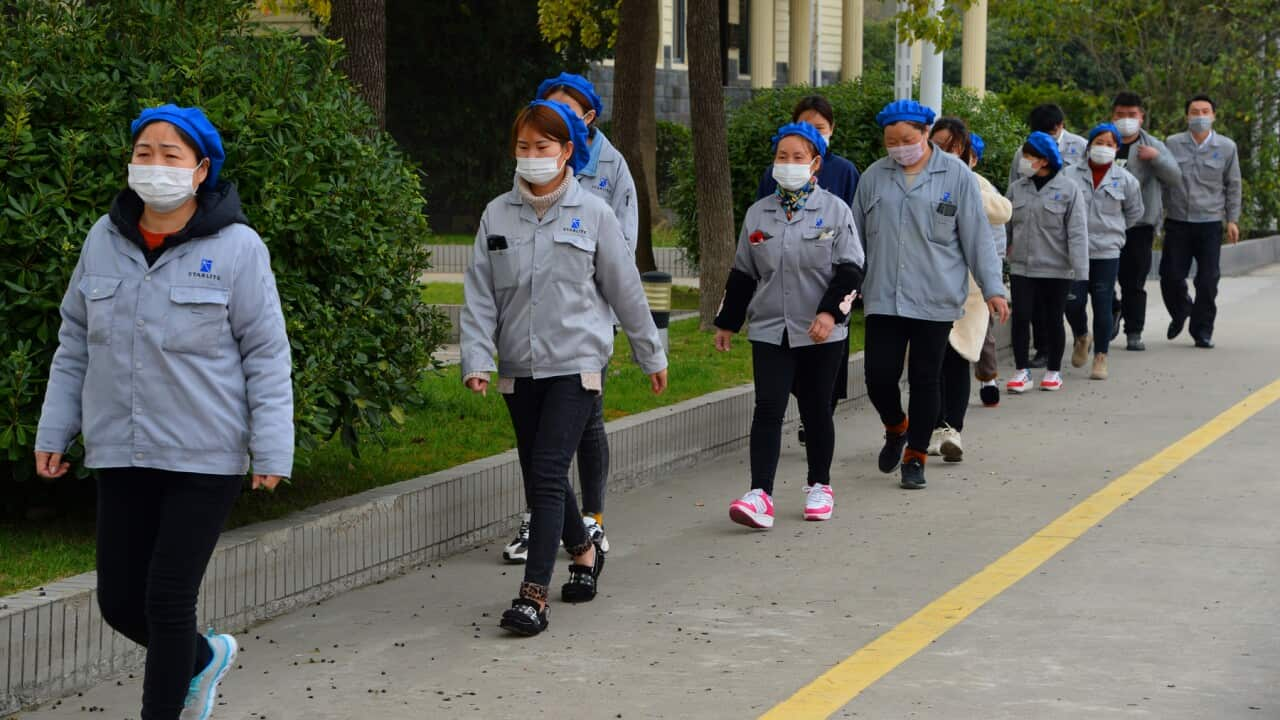The United States told Americans on Wednesday to begin preparing for coronavirus to spread within the country as outbreaks in Iran, South Korea and Italy escalated and fears that the epidemic would hurt global growth rattled markets.
Dr Nancy Messonnier, an official at the US Centers for Disease Control and Prevention (CDC), told reporters that data on the virus’ spread over the past week had heightened the agency’s expectations of transmission within the United States.
“Disruption to everyday life might be severe,” she cautioned.
While saying the immediate risk from the coronavirus in the US remained low, another top CDC official, Dr Anne Schuchat, said it was no longer a question of if the virus would become a global pandemic. “It’s a question of when and how many people will be infected.”
Cases surge outside China
New coronavirus cases surged outside of China on Tuesday, leaving an and triggering mass disruption as a top health official warned the world is not prepared for containing the epidemic.
Even as the number of fresh cases declines at the epicentre of the disease in China, there has been a sudden increase in parts of Asia, Europe and the Middle East.
Towns and cities in different parts of the world have been sealed off in an attempt to stop the contagion, while because of suspected cases.
In Iran, which has reported 16 deaths out of nearly 100 infections, even the country's deputy health minister Iraj Harirchi said he had contracted the virus.
At the World Health Organization (WHO) headquarters in Geneva, Bruce Aylward, who headed an international expert mission to China, hailed measures taken there but told reporters that other nations were "simply not ready" for reining in the outbreak.
"You have to be ready to manage this at a larger scale... and it has to be done fast,"Mr Aylward said.

Forza Italia MP Matteo Dall'Osso and Maria Teresa Baldini of the Brothers of Italy (FDI) wearing protective face masks in the Italian parliament. Source: AAP
Travel and trade routes
The virus has killed more than 2,600 people and infected over 77,000 others in China. In the rest of the world, there have been more than 40 deaths and 2,700 cases.
The disease has now reached dozens of countries, with Austria, Croatia, Algeria and Switzerland the latest additions on Wednesday.
The epidemic's disruption has also grown, with stock markets tumbling around the world, restrictions imposed on travellers and sporting events cancelled.
The WHO, the UN health agency, has - a term used to describe an epidemic that spreads throughout the world.
Poor countries are particularly at risk, the WHO has warned.
Gulf cuts links to Iran
In the Middle East, Iran has emerged as a major hotspot.
The death toll - the deadliest outside China - rose to 16 on Wednesday when three more people succumbed to the disease, officially known as COVID-19.
The country has been scrambling to contain the epidemic since last week when it announced its first two deaths in Qom, a centre for Islamic studies and pilgrims that attracts scholars from abroad.
US Secretary of State Mike Pompeo, whose country came to the brink of war with Iran earlier this year, said Washington is deeply concerned Tehran "may have suppressed vital details" about the outbreak there.
Gulf countries announced new measures to cut links with Iran in an attempt to stop the spread.
The United Arab Emirates suspended passenger and cargo flights to Iran, while Bahrain closed schools and nurseries for two weeks. This came after the Gulf states of Kuwait and Bahrain announced additional cases.

Shiite pilgrims wear masks outside the shrine of Imam Ali in Najaf, Iraq. Source: AAP
Games off
South Korean President Moon Jae-in warned that the outbreak was "very grave". His country's death toll rose to 11 and the number of confirmed infections jumped well into four figures Wednesday as authorities reported 169 new infections, taking the overall tally to 1,146 - by far the largest outside China.
Scores of events, including K-pop concerts, have been cancelled or postponed in the world's 12th-largest economy.
Parliament closed for cleaning on Tuesday after confirmation that a person with the coronavirus had attended a meeting there last week. More than 80 per cent of the infections have been in and around Daegu, South Korea's fourth-largest city.
More than 80 per cent of the infections have been in and around Daegu, South Korea's fourth-largest city.

Health workers disinfect the main auditorium at the parliamentary member's office building in the National Assembly in Seoul, South Korea, 24 February 2020. Source: AAP
In Japan, , a health ministry official said.
Nearly 700 people from the quarantined ship have tested positive for the illness so far. Infections have also spiked in Japan, with at least 164 cases including one death.
. Prime Minister Giuseppe Conte has said the measures could last weeks.
A young man who returned to Croatia from Italy became the first case in the Balkans region.
Upcoming football matches in Italy's Serie A and the Europa League will be played to empty stadiums.
A major rugby match could also be affected. Ireland's government recommended cancellation of next month's Six Nations clash against Italy in Dublin.
In Venice, production of the latest "Mission: Impossible" film starring Tom Cruise was stopped.
Swiss food giant Nestle postponed all business trips until mid-March because of the virus.
China returning to business
In China, though, the epidemic appears to be slowing - and the country is gingerly returning to business.
More cars are on the streets of Beijing, factories are resuming work, Apple is reopening several stores, and some regions are relaxing traffic restrictions.
But schools remain closed, the capital has a mandatory 14-day quarantine for returning residents, and authorities are keeping about 56 million people in Hubei Province - the hub of the outbreak - under lockdown.





